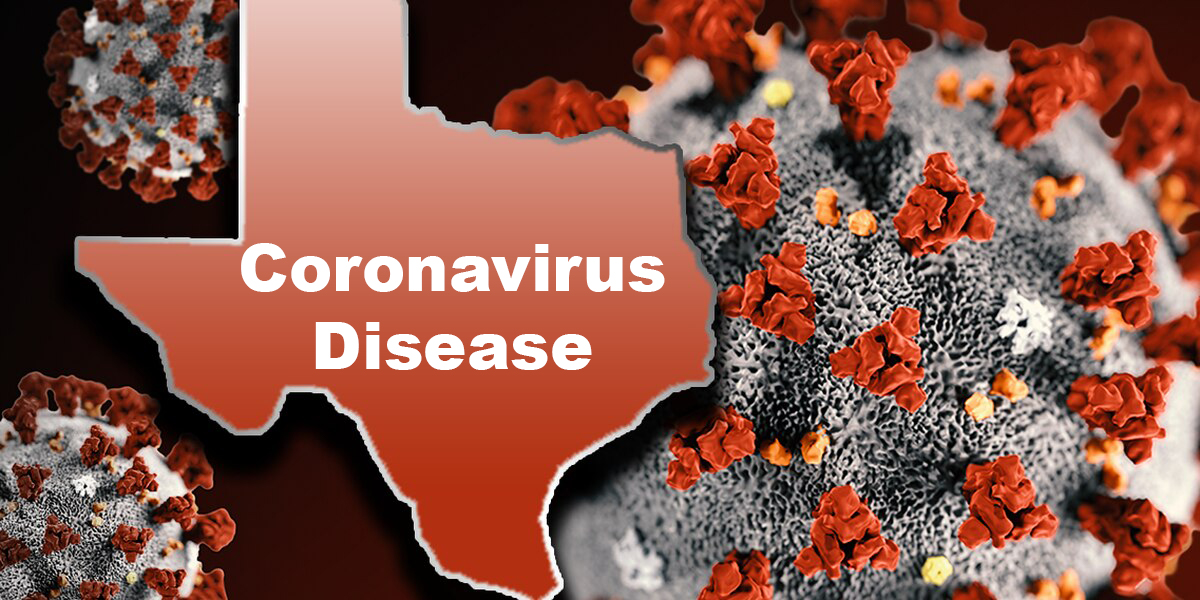Coronavirus Disease (COVID-19)

El Centro is currently offering Coronavirus/COVID-19 testing for asymptomatic and symptomatic adults and children at our John S. Dunn Health Center.
Testing is available at our John S. Dunn Health Center located at 7635 Canal St., Houston, Texas 77012, Monday – Thursday from 7 a.m. – 2 p.m. For the safety of our patients and staff, please call (713) 660-1880 ext. 2210 to make an appointment.
At El Centro de Corazón our top priority is protecting the health and safety of our patients, staff members, and the communities we serve. We understand that this can be a confusing time, but we are committed to responding to your needs, partnering with other providers and health authorities and staying informed as this evolves in Harris County and the City of Houston.
Most people who get COVID-19 will experience mild symptoms that they can easily manage at home. Please do not come to the clinic if you are experiencing any symptoms (cough, fever, difficulty breathing). If you develop COVID-19 symptoms or believe you have been exposed to someone who has tested positive for COVID-19, please call El Centro at (713) 660-1880 to speak to our staff.
+ What is El Centro doing to protect its patients and staff?
With Coronavirus/ COVID-19 in our city and county, the health and well-being of our patients and staff are our top priority. We are following the Centers for Disease Control and Prevention guidelines and the state and local authorities. This includes:
- All patients are required to schedule an appointment.
- Patients and visitors must wear a face mask or cloth face-covering within the health centers. If a patient or visitor does not have a mask, one will be provided.
- The number of caregivers or family members who may accompany a patient during their visit is limited.
- To prevent exposure to the coronavirus, patients awaiting their COVID-19 test or a routine visit must wait in their vehicles for further instructions.
- Every employee is required to perform a self-screening that includes a temperature check upon entry to work.
- Every employee is required to adhere to the existing health and safety protocol including frequent handwashing and proper use of PPE (Personal Protective Equipment).
- Hand sanitizer is available at each entrance and at numerous locations throughout each El Centro facility.
- Common areas are cleaned 4 times a day with EPA (Environmental Protection Agency) approved disinfectants.
- Exam rooms are fully cleaned and disinfected after each patient with EPA approved disinfectants.
- All group medical appointments, physical fitness classes, and gardening activities are cancelled until further notice.
- Every employee is urged to stay home if they are sick.
+ Are there any changes to El Centro’s hours of operation?
Yes, for updated information about El Centro’s hours of operation and services, click here.
+ What You Need to Know
Be informed and know your risk during COVID-19 >
What are the symptoms of COVID-19?
The following symptoms may appear 2-14 days after exposure.
- Fever or chills
- Cough
- Shortness of breath or difficulty breathing
- Fatigue
- Muscle or body aches
- Headache
- New loss of taste or smell
- Sore throat
- Congestion or runny nose
- Nausea or vomiting
- Diarrhea
Source: Centers for Disease Control and Prevention
How does the virus spread?
COVID-19 is thought to spread mainly through close contact from person-to-person. Some people without symptoms may be able to spread the virus. We are still learning about how the virus spreads and the severity of illness it causes. The virus that causes COVID-19 is spreading very easily and sustainably between people. Information from the ongoing COVID-19 pandemic suggests that this virus is spreading more efficiently than influenza, but not as efficiently as measles, which is highly contagious. It may be possible that a person can get COVID-19 by touching a surface or object that has the virus on it and then touching their own mouth, nose, or possibly their eyes.
Source: Centers for Disease Control and Prevention
Person-to-person spread
The virus is thought to spread mainly from person-to-person.
- Between people who are in close contact with one another (within about 6 feet).
- Through respiratory droplets produced when an infected person coughs, sneezes, or talks.
- These droplets can land in the mouths or noses of people who are nearby or possibly be inhaled into the lungs.
- COVID-19 may be spread by people who are not showing symptoms.
What is the difference between COVID-19, Flu, and Allergies?
Coronavirus
- Fever
- Cough
- Shortness of breath
- Breathing difficulties
Flu
- Fever is common
- Dry cough
- Quick onset
- Headache
- Sore throat
- Fatigue
- Sometimes a runny nose
- Sometimes diarrhea
Allergies
- Runny nose
- Sneezing
- Red, swollen eyes
- Itchy eyes
- Itchy nose
- Tickle in the throat
- Rarely a fever
Who is at higher risk for developing COVID-19?
Based on currently available information and clinical expertise, older adults and people of any age who have serious underlying medical conditions might be at higher risk for severe illness from COVID-19.
Those at high-risk for severe illness from COVID-19 are:
- People 65 years and older
- People who live in a nursing home or long-term care facility
People of all ages with underlying medical conditions:
- People with chronic lung disease or moderate to severe asthma
- People who have serious heart conditions
- People who are immunocompromised
- People with severe obesity (body mass index [BMI] of 40 or higher)
- People with diabetes
- People with chronic kidney disease undergoing dialysis
- People with liver disease
Please consult with your health care provider about additional steps you may be able to take to protect yourself.
Source: Centers for Disease Control and Prevention
What steps should you take to protect yourself and others?
- Wash your hands often with soap and water for at least 20 seconds especially after you have been in a public place, or after blowing your nose, coughing, or sneezing. If soap and water are not readily available, use a hand sanitizer that contains at least 60% alcohol.
- Avoid touching your eyes, nose, and mouth with unwashed hands.
- Avoid close contact with people who are sick.
- Put distance between yourself and other people if COVID-19 is spreading in your community.
- Stay home if you are sick, except to get medical care.
- Cover your mouth and nose with a tissue when you cough or sneeze or use the inside of your elbow.
- Clean and disinfect frequently touched surfaces daily. This includes tables, doorknobs, light switches, countertops, handles, desks, phones, keyboards, toilets, faucets, and sinks.
How to Wear a Cloth Face Covering?
CDC recommends wearing cloth face coverings in public settings where other social distancing measures are difficult to maintain (e.g., grocery stores and pharmacies), especially in areas of significant community-based transmission. Cloth face coverings should not be placed on young children under age 2, anyone who has trouble breathing, or is unconscious, incapacitated or otherwise unable to remove the mask without assistance.
Cloth face coverings should:
- fit snugly but comfortably against the side of the face
- be secured with ties or ear loops
- include multiple layers of fabric
- allow for breathing without restriction
- be able to be laundered and machine dried without damage or change to shape
For a video on how you can create your own face covering, click here.
What to do if you believe you may be infected?
If you think you have been exposed to COVID-19 and develop a fever and symptoms, such as cough or difficulty breathing:
- Stay home: People who are mildly ill with COVID-19 are able to recover at home. Do not leave, except to get medical care.
- Avoid public areas and public transportation.
- Separate yourself from other people in your home and limit contact with pets and animals.
- If you have a medical appointment, call your doctor’s office, and tell them you have or may have COVID-19. This will help the office protect themselves and other patients.
When should I seek medical attention?
If you develop emergency warning signs for COVID-19 get medical attention immediately. Emergency warning signs include:
- Trouble breathing
- Persistent pain or pressure in the chest
- New confusion or inability to arouse
- Bluish lips or face
Source: Centers for Disease Control and Prevention
When to quarantine?
Stay home if you might have been exposed to COVID-19. You should stay home for 14 days after your last contact with a person who has COVID-19.
Stay home and monitor your health
- Stay home for 14 days after your last contact with a person who has COVID-19
- Watch for fever (100.4◦F), cough, shortness of breath, or other symptoms of COVID-19
- If possible, stay away from others, especially people who are at higher risk of getting very sick from COVID-19
Source: Centers for Disease Control and Prevention
Are you considering traveling?
To check out the recommendations by the Centers for Disease Control and Prevention (CDC), click here.
For additional information, visit the Centers for Disease Control and Prevention and the World Health Organization.




